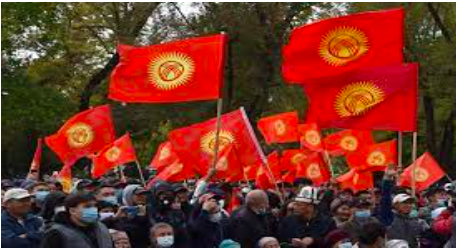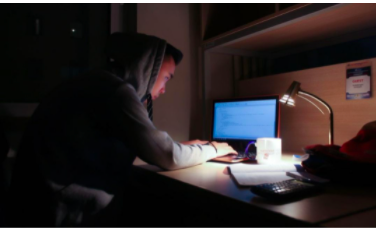The equities of militant terrorism in South East Asia distinguished as an ordeal of terror
Posted on : May 9, 2021Author : Alokananda Nag

The clasping hands of the Al-Qaida and Radical Islam in South East Asia – Forbearance, Temperance and Ethnic- inclusiveness has always been the salient features of Islam in the region of South East Asia. The settlers of the land embrace the secular essence of the religion and shun the extreme hostilities along with the hard-headed evaluation of the religion, that has infested their South-Asian and Middle East religious correspondents. There is a small proportion of inhabitants who patronize the establishment of an Islamic regime governed by the Sharia that has its foundation laid in the holy book of Quran. Religious radicalism paving way for the Muslim militancy to outgrow has been a conventional prototype in the region of South East Asia but has been grounded to their own domicile issues. The exploration has been hasty and does not encompass the fact that these home-grown radical militants have been thoroughly successful in drawing a connection with the transcontinental organizations like the Al-Qaida itself. The examples would further substantiate the claim- On October,12, 2002 there was a catastrophic attack on a Balinese nightclub that killed many Australian tourists. The attack was an indicator of the presence of such radicalism to the authorities who have been persistently whimsical in their approach. We might consider them as a minority in the race but the potential of these organizations to inflict political and social tumult is inconceivable which makes them a cardinal entity for the governments. Humanity witnessed the most ruthless and relentless thunderbolt with the attack of the 9\11 causing a black hole and churning the human conscious.
The repercussions of 9/11 on the Western World and South East Asian Islam– The Western erudition comprised of thinkers who professed Islam as a religion of the Middle Eastern terrain exclusively with the Muslim societies subjected to abject Arab ascendancy. This cultural predisposition has been the backbone for the deficiency of interest in the Muslim periphery along with other grounds of geopolitical triviality because of the lack of oil politics along with a slighter robust effort to transfigure the religion on the lines of political conquest. This propensity to restrict Islam to the Middle East origin has actually created room for loopholes. This outlook casts a shadow over the rationale that a majority of the Muslim population are to be found in the Asian soil and demonstrating the religion in their public life. The earnest inventiveness to decipher political Islam with regards to South East Asian vistas was considered a serious business post 9/11 within the policy making circuit. It was commenced with the annihilation of the Al-Qaida pedestals in Afghanistan that seized the inquisitiveness of the engineers and originators of the Global War On Terrorism ( GWOT)to South East Asia as a boiling point of terrorist activities.
Institutionalized mutiny in South East Asia- The fashioning of the Jemaah Islamiah (Islamic Congregation ) was an ambitious gesture to outshine the emblem of Pan-Islamism cutting across perimeters in South East Asia. The cabal of this institution was disentangled by a series of rampant arrests along with orchestrated cross-examining, confinement of the members in 2001-02 in Singapore. The JI was a brainchild of Abdullah Sungkar and Abu Bakr Basyir who eloped from Indonesia in 1985 in order to negate the backlash installed by President Suharto. It was by 1990s that the organization had been fortunate in obtaining a solemn anatomy, establishing cellular networks connecting recruits from South East Asian countries like Malaysia, Indonesia, Singapore and the Philippines. The organization further derived its durability from two very primary sources-The financially equipped companies and the self-standing Islamic boarding schools imparting their knowledge on radical ideology. The JI went on with their manipulation of the penetrable borders, neglectful financial management and infirm jurisdictions pertaining to security of the Southeast Asian countries in order to fabricate the region in to an economic as well as political drain for the organization’s unwarranted activities. This venture enabled the organization to sustain their relationships with the Al-Qaida and the funders from the Middle East. The government in Indonesia had very little knowledge about the existence of such a vindictive organization until the bombings in Bali in 2002. There were a host of other atrocities executed such as the bombings of the JW Marriot Hotel and the outside of the Australian embassy in Jakarta in August 2003 and September 2004. There have been reports that illustrated the aligning of some government officials and Islamic scholars also known by the name of ulama towards the two most prominent Islamic consortium, the conservation Nahdlatul Uama (NU, Renaissance of Ulama) and comparatively modern Muhammadiyah. These organizations endorse their association with many militant Islamic Laskars (militia) who emerged in the post New Order Indonesia.
Wahhabism/Salafism and its multifariousness– The academicians have made pertinacious efforts to raise caution about the growing influence of Wahhabism/Salafism among the Malay masses. The Malay elites have outshone a sense of enticement towards Wahhabism/Salafism but simultaneously show an explicit regard for the myriad views. They can also be subjected to exclusionism carried out by competing groups. Taking an exemplar of Dr. Mohd Asri Zainul Abidin addressed by the name of Maza by his henchmen resigned from his post after two years remaining in office. He was designated as Perlis Mufti in the year 2006 and was restored back to power in 2015. He has been very well-accepted among the young and remains as a seeable entity on the social media platform.
Mohd Asri might appear as a traditionalist but one cannot deny that many of his viewpoint regarding the rights of women, freedom of religion and worship has been cumulative and thereby extensively discerned. This outlook of Mohd Asri facilitates the contradiction of views that many intellectuals uphold about union in between Wahhabism, savagery and ISIS (Islamic state of Iraq and Syria). According to Asri’s school of thought, the Malaysian Muslims must be less prudent and not abide by the Shafie School as the only birthplace of law but shall maintain a sense of responsiveness to other schools of charters.
This standpoint is completely refuting the viewpoint administered by the Ulama in the region of Nusantra that practices the Shafie school of charter.
Contemporary Indonesia
Shifting one’s lens towards contemporary Indonesia, it can be noted that the roots of Islam have been accomplished in establishing a formal structure such as the Partai Keadilan Sejahtera (PKS) that has been successful in maturing itself from an Islamist party into a more semi-Islamist or Centrist party. There have been several other parties promoting the Islamic agenda who have been operating outside the panorama of electoral politics. These parties have vehemently refused to nominate any of their candidates because they consider the entire election process as an Un-Islamic one but desire to attain power of the state. The remarkable ones are the Hizbut Tahrir Indonesia and the Majelis Mujaheedin Indonesia. These parties lack the probability of attaining a consolidated power in Indonesia along with championing their motive of a Universal Caliphate. There are certain state sponsored institutions which serve as a locus where many leaders can be found such as the Indonesian Ulamas Council (Majelis Ulama Indonesia, MUI). In order to regulate and facilitate the proper management of Islam, the council was established by the Soeharto regime in 1975. The members include mostly of mean and a very few proportion of women. It also postulates an orthodox set of judgments. The foremost ones were the fatwas proclaiming liberalism, secularism and pluralism as unsanctioned to Muslims. The fatwas also restricted the Muslims marrying the Non-Muslims {despite certain approval from the Qura’n to marry a Jewish or Christian woman as indeed had the prophet Mohammad himself} and the debarring of the Muslims to be absorbed in joint prayers by the Non-Muslims.
The emancipation of lethal-bureaucratic Islam– Let us take a tour of the states in Malaysia administering a completely separate set of state legislations based Syariah laws. Below are the set of these laws exercised in the states of Selangor and Kelantan before and after 1980.
1.Administration of Muslim Law Enactment 1952 – Selangor
2.Islamic Family Law (state of Selangor) Enactment 2003
- Administration of the Religion of Islam(State of Selangor) Enactment 2003
- Non-Islamic Religion (Control Against Propagation Against Muslims) Enactment 1988
- Syariah Court Civil Procedure (State of Selangor) Enactment 2003
- Syariah Criminal Procedure (State of Selangor) Enactment 2003
7.Syariah Court Evidence (State of Selangor) Enactment 2003
- The Syariah Courts and Muslim Matrimonial Causes Enactment 1966 –kelantan
- Kelantan Islamic Religious Council and Malay Custom Enactment 1966
- Control and Prohibition of Propagation of Non-Islamic Religion Enactment 1981-Kelantan
- The Administration of Kelantan Syariah Courts Enactment 1982
- Islamic Family Law Enactment of Kelantan 2002
- Syariah Civil Procedure of Kelantan Enactment 1984
- Syariah Criminal Procedure of Kelantan Enactment 1985
- Syariah Court Evidence Enactment 1991
The coursework of the bureaucratic Islam has been furnished between the 1980’s and the late 1990’s. The forbiddance of practicing Yoga for the Muslims issued by the fatwa has been an example of staunch dogmatic behavior considered anomalous by state endorsed Islam. Al Sunnah Wal Jamaah or Sunni Islam is the model that is accredited by the state and shuns any scope of Sufism to outgrow in the region. It further limits ensuing the tutoring of self-fashioned preachers together with restraining the listening, reading, purchasing of printed materials, video cassettes or any recordings advertizing these contents.
Terrorism is a global phenomenon and the propensity of hostility unleashed by it can be curbed if there is a meticulous understanding of the roots of the evil. We must be conscious of the domiciliary pressure that these groups witness. It is implausible to regard a pan –Islamic movement in South East Asia but it has the potency to make the political and economic standings brittle.
Alokananada Nag
Intern, Asia in Global Affairs
The views, thoughts, and opinions expressed in the text belong solely to the author, and do not in any way reflect the point of view of Asia in Global Affairs.
References
- Militant Islam In South East Asia crucible of terror-DR. Zachary Abuza https://www.rienner.com/uploads/47d9901874b3e.pdf
- Islam in South East Asia negotiating modernity- Norshahril Saat https://mail.google.com/mail/u/0?ui=2&ik=51bd8ce3b6&attid=0.2&permmsgid=msg-f:1698713756936413991&th=17930b296943a327&view=att&disp=inline&realattid=f_ko85tlgk0
- Repoliticisation of Islam in South East Asia https://mail.google.com/mail/u/0?ui=2&ik=51bd8ce3b6&attid=0.1&permmsgid=msg-f:1698713756936413991&th=17930b296943a327&view=att&disp=inline&realattid=f_ko85tlgv1
- Encountering Islam ,The politics of religious identities in South East Asia(2013, Institute of South East Asian Studies) https://mail.google.com/mail/u/0?ui=2&ik=51bd8ce3b6&attid=0.3&permmsgid=msg-f:1698713756936413991&th=17930b296943a327&view=att&disp=inline&realattid=f_ko85tlgw2




